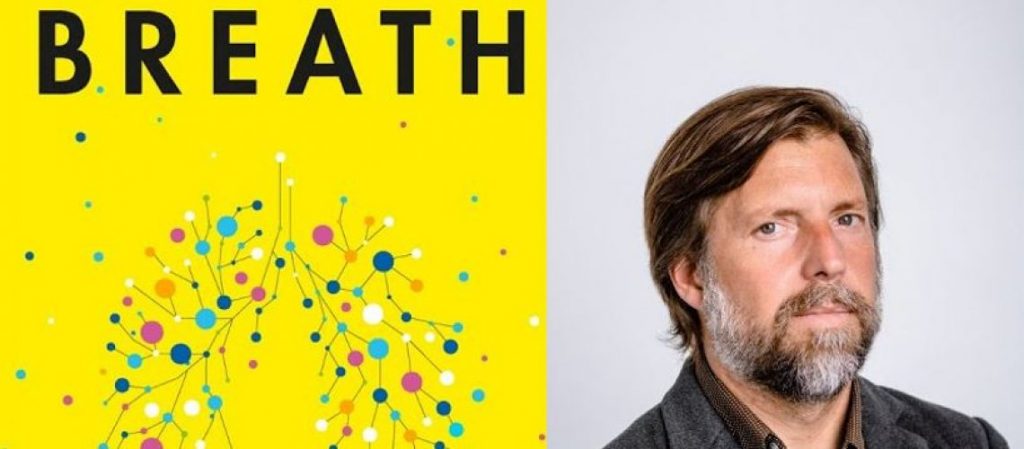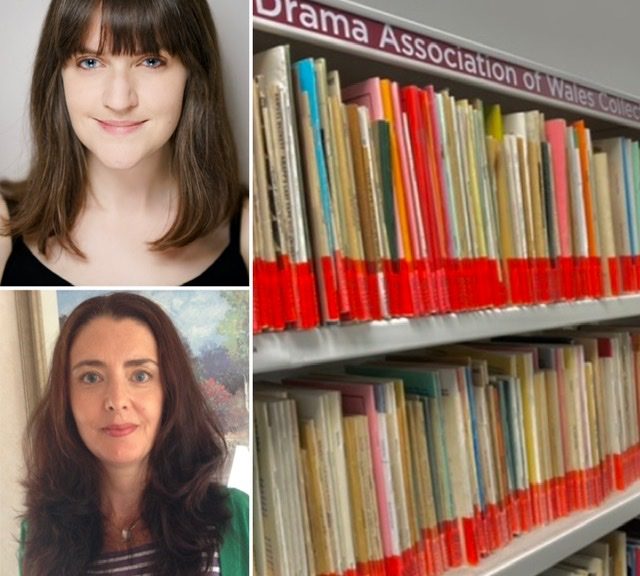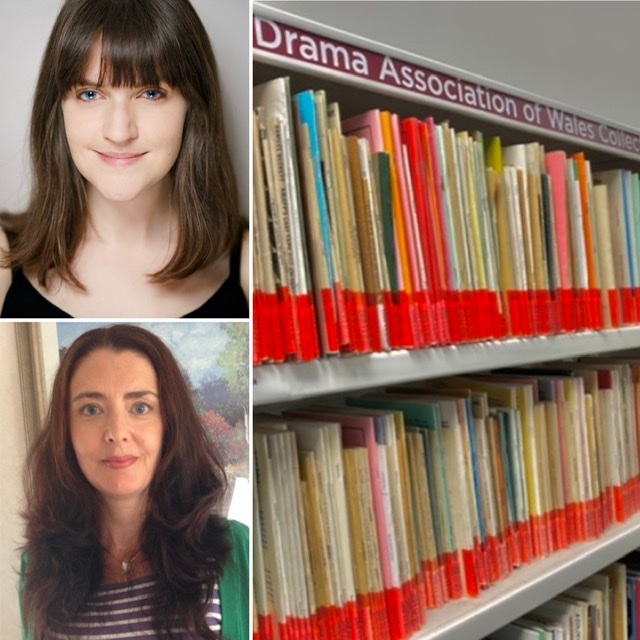
In this interview, Director of Get the Chance, Guy O’Donnell chats to Judith Dray, Head of Library Services, Royal Welsh College of Music and Drama and Mandie Garrigan, Libraries Assistant, RWCMD. We discuss their roles at the College, access to the library, the Drama Association of Wales Collection and their latest recommendations!
What got you interested in the library service?
MG: I have a background in the performing arts and managing bookshops in Hay-on-Wye but more importantly my jobs have been customer serviced based which is required for this role. The library service here is a little different, it allows me to interact with our staff and students, but I’ve also been working with our archives and special collections (mostly the College Archives and The Foyle Opera, Rara Collection).
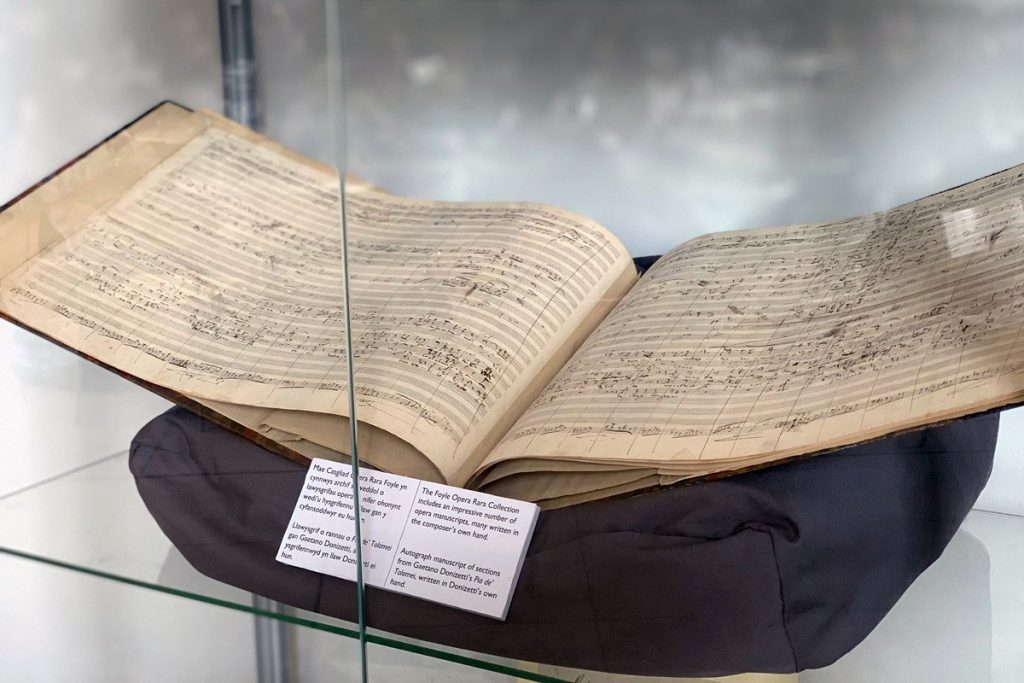
Working in the library also involves helping on projects, creating working systems and generally having a go at anything! I started managing the DAW (Drama Association of Wales) collection when I covered for a maternity post 5 years ago. I manage all the memberships, orders, invoicing and have catalogued the sets in the past.
JD: Like Mandie, I have a background in performing arts. I also have lots of experience working in higher education, both working with research collections and supporting learning. I originally came to the Royal Welsh College of Music & Drama (RWCMD) as an archivist in 2018 and then was seconded to Head of Library Services during the pandemic and became permanent in 2022. The role marries together my background in the performing arts with my passions for libraries and higher education. We have lots of fascinating, unique, and distinctive collections here: I’ve loved finding out about them and I’m excited to share them with new audiences.
The RWCMD library houses the Drama Association of Wales (DAW) collection. This is the largest lending collection of scripts in English in the UK and is available for hire to individuals and groups. Can you tell me more about the collection and how it’s used?

JD: The Drama Association of Wales formerly housed the largest lending collection of scripts in English in the UK. In 2014, the play text collection transferred to the RWCMD Library and is available for hire to individuals and groups. Mandie is the person who works most closely with the collection and the people and groups who borrow from it.
MG: The collection inherited some members when it came here, so when it arrived a membership scheme was set up where groups or individuals pay to become members. This allows them to have access to the collection and borrow plays. We have some University of the Third Age members, amateur drama groups, play reading groups and individuals who enjoy our plays. Over the last few years, Covid has changed the way people meet and groups are only just getting back together, so the service is now running again. We would like to develop the service over the next few years, and it is currently under review.
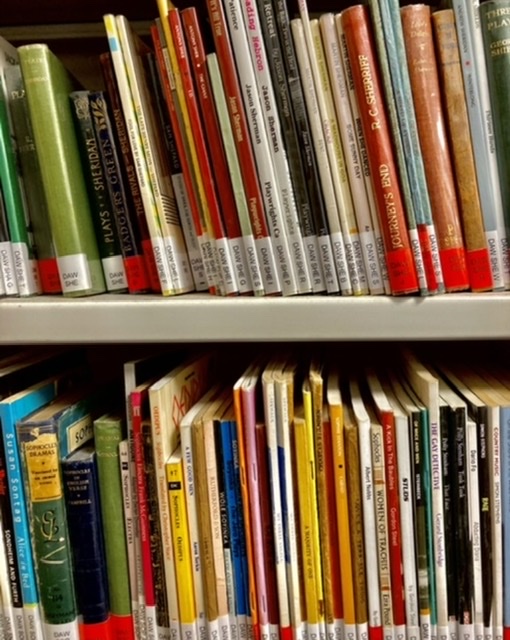
Michael Sheen patron of Drama Association of Wales and International Chair of Drama, RWCMD said of the collection “This drama collection is of hugely significant cultural value. It’s imperative that it’s saved for the nation. It seems fitting that it’s been rescued by the Royal Welsh College, and found its rightful home at the National Conservatoire of Wales.”
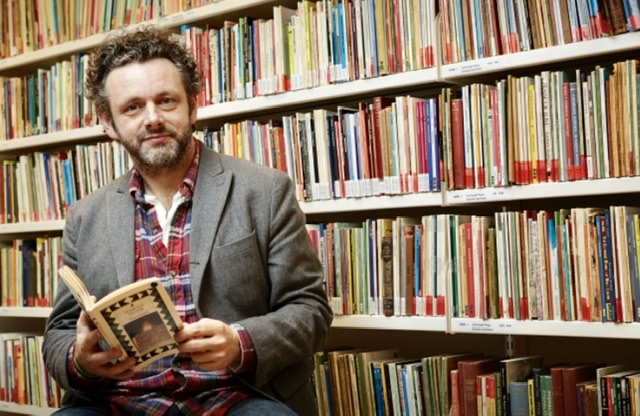
Can the public access the RWCMD Library?
JD: We welcome community members to the RWCMD Library. It’s free to browse and members of the public can join in order to borrow items. There’s more information about joining online here and we welcome enquiries by email (library@rwcmd.ac.uk).
MG: Yes, anyone can join as Judith says, and you can now browse a portion of the DAW collection online. I think around 2,800 of the DAW plays have been catalogued now, mainly the sets.
With increased pressure on public funding many Library services have been cut or are under threat, why are libraries important to you and wider society?
JD: As an academic library, we are not facing the same existential threats as many public libraries have faced in recent times, but it is a worrying trend. Libraries are not just about lending books. At their best, libraries can foster communities; they can provide safe spaces; and they can promote equality and inclusion by giving free access to resources, computers, and equipment.
What was the last really great book that you read that you would like to share with our readers?
JD: Earlier this year I read Whole Notes: Life Lessons through Music by Ed Ayres. I’ve been recommending it to everyone and bought a copy for the RWCMD Library. It is about music, healing, the lived experiences of a transgender musician, teaching, learning and so much more. It also includes Spotify playlists which enable the reader to share in some of Ed’s experiences which I thought was a lovely touch.
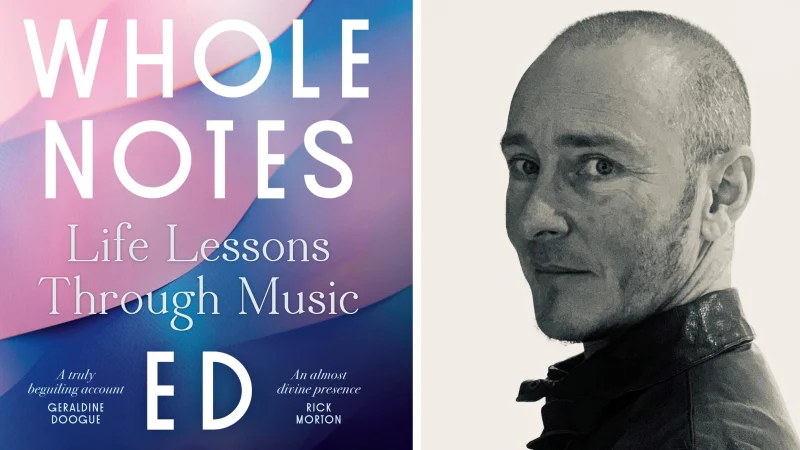
MG: Not my last but I am reading Breath: A New Science of a Lost Art by James Nester which is also available in our library. I’m only on the first few chapters but it’s one of those books that can challenge your perception on something we all do. I enjoy books that question the way we think about our bodies and mental health. I am also very keen browser of our art and design books, one of my favourites being Stages of decay by Julia Solis, a book depicting various theatres/performing areas in dilapidated conditions which are strangely beautiful.
